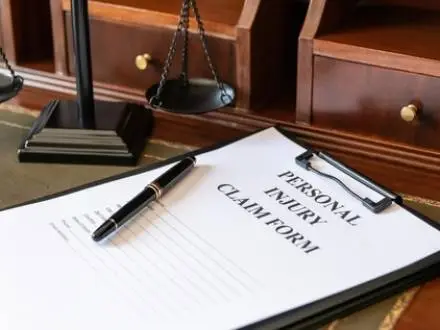What Is Liability in Personal Injury Cases?
What Is Liability in Personal Injury Cases?

Many types of accidents or incidents can qualify you to obtain compensation for your injuries and related losses by filing a personal injury claim. The claims process is much more complicated than simply blaming someone and receiving a settlement. You must establish liability and meet other qualifications.
Regardless of the kind of accident you experienced, you need to understand what liability means, how it applies to your case, and how a skilled lawyer from The Law Offices of John D. Ameen, P.A. can help.
What Is Liability in Personal Injury Cases?
You will see this term used in different ways in personal injury cases. Basically, it is a responsibility that connects a person, organization, company, or other party to something else:
- A liable insurance company is responsible for paying damages for a valid claim.
- A liable driver is at least partially responsible for causing an accident.
- A liable property owner is responsible for maintaining safe premises.
- A liable company may be responsible for your injuries and damages if it designs, manufactures, or sells faulty or unsafe products.
For most personal injury claims, you must prove that someone’s negligence is directly responsible for your injuries and associated damages or losses. That negligent action or omission makes the person liable — or obligated — to compensate you for your qualifying losses.
Many times, an investigation into the cause of your accident is necessary. When you understand why and how your accident happened, the evidence you find will likely point to one or more liable parties. Without this connection, you will not be able to force anyone to pay your damages.
Personal Injury Case Classifications Including “Liability”
Personal injury cases are typically grouped according to the cause of your injuries. Your case might involve a car accident, truck collision, or other types of accidents. Two classifications include “liability” in their descriptions.
Premises Liability
Property or business owners, government agencies, and other parties are responsible for keeping properties safe for rental space residents, guests, and invitees. These premises may be retail stores, theme parks, restaurants, parking garages, public office buildings, apartment complexes, and many other kinds of spaces. Florida laws may entitle you to collect compensation through a premises liability claim if you sustain injuries due to:
- Broken, damaged, or uneven floors, stairs, or outdoor walking surfaces
- Insufficient lighting
- A lack of appropriate security
- Animal attacks
- Third-party assaults
- Dangerous equipment in public playgrounds
Establishing liability for these cases is tricky; to qualify for compensation, you need to prove that the party responsible for the premises knew or should have known about the hazardous condition yet did not fix it or warn others about it.
Product Liability
When consumers use products in the intended ways, they should not be harmed. Product liability holds product designers, manufacturers, and distributors responsible for injuries caused by defective or unsafe products. While some items, like chainsaws, have inherent risks, they should not harm the user if handled correctly.
Our Fort Lauderdale, FL Personal Injury Lawyers Offer Free Consultations – Call Now
Establishing liability and getting someone else to admit liability can be complicated, but you must do so to receive a settlement. At The Law Offices of John D. Ameen, P.A., we understand how various laws apply to your case and can help you maximize your compensation amount. Call us at 954-763-4950 today to speak with our skilled Broward County, FL premises and product liability attorneys.



